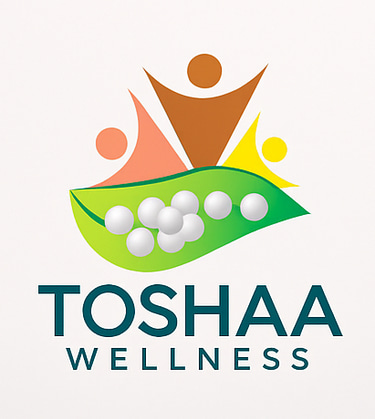Harnessing Homeopathy for Postpartum Mental Health


Welcoming a new life into the world is a profound and joyful experience. But for many mothers, the postpartum period can be emotionally overwhelming. Fluctuating hormones, physical exhaustion, and the immense responsibility of caring for a newborn can take a toll on mental well-being. In my clinical practice, I have seen how gentle yet powerful homeopathic remedies can provide deep emotional and psychological support for women during this delicate time.
In this blog, I will explore how homeopathy approaches postpartum mental health, the remedies commonly used, and why individualized treatment is the cornerstone of our healing philosophy.
🌸 Understanding Postpartum Mental Health
The postpartum phase is typically defined as the first six weeks after childbirth, but emotional and psychological changes can persist far beyond that. Mental health challenges during this period include:
Postpartum Blues (experienced by up to 80% of mothers)
Postpartum Depression (PPD)
Postpartum Anxiety
Postpartum Psychosis (a rare but severe condition)
These conditions are not signs of weakness or failure. They are real, clinical issues that deserve compassionate and holistic attention.
🌿 The Homeopathic Perspective
Homeopathy treats the individual, not the diagnosis. Every woman’s emotional, mental, and physical state after childbirth is unique. While two mothers may be diagnosed with PPD, their inner experiences can be vastly different—and so will their remedies.
As a homeopath, I look deeply into:
The mother’s mental and emotional state
Her delivery experience and any trauma involved
Family dynamics and stressors
Sleep patterns, fears, guilt, or sense of detachment
Her physical symptoms like hormonal imbalances, weakness, lactation issues, etc.
This complete picture guides me to the simillimum—the remedy that resonates most closely with her whole state.
🕊️ Commonly Used Homeopathic Remedies in Postpartum Mental Health
Each case must be individualized, but here are some remedies I often consider in postpartum mental health support:
1. Sepia officinalis
One of the most frequently indicated remedies for postpartum depression.
The mother feels emotionally detached from her baby and partner.
She may feel overwhelmed, irritable, and desire to be left alone.
There is often a sensation of pelvic heaviness and hormonal imbalances.
2. Pulsatilla nigricans
For gentle, weepy mothers who seek consolation.
Symptoms may change frequently.
Feels better in open air and being around loved ones.
3. Natrum muriaticum
Reserved and introverted mothers who bottle up emotions.
Carries a deep sense of grief or past unresolved sadness.
Often feels worse with consolation and prefers to cry alone.
4. Ignatia amara
For acute grief, disappointment, or emotional shock after delivery.
The mother may sigh frequently, experience mood swings, or present with hysteria-like symptoms.
5. Lachesis muta
Intense emotional states, jealousy, suspicion, and loquacity.
Often indicated when PPD is accompanied by PMS-like symptoms or hot flushes.
6. Aurum metallicum
For mothers with deep sadness, guilt, and suicidal thoughts.
Often used when the sense of failure or worthlessness is overwhelming.
🌱 The Role of Constitutional Treatment
While acute remedies offer significant relief, constitutional homeopathic treatment is often necessary for deeper and lasting healing. It addresses:
Long-standing emotional patterns
Hormonal imbalances
History of trauma or suppressed grief
Tendency toward depression or anxiety
A properly selected constitutional remedy strengthens the vital force and restores the mother’s ability to adapt, nurture, and thrive.
💬 Real-Life Case Reflection
One of my patients, a 32-year-old mother, came to me 3 months postpartum. She was deeply exhausted, felt emotionally numb toward her child, and constantly battled guilt for not “feeling enough.” After a detailed case history, I prescribed Sepia in a suitable potency. Within a few weeks, she began to feel more connected, energized, and balanced. Her journey of recovery continued with supportive care and eventual constitutional treatment.
🌼 Integrating Holistic Support
Homeopathy works best when integrated with:
Nutritional support: Iron, Vitamin D, Omega-3s, and adequate hydration
Emotional counseling or support groups
Gentle physical activity: Walking, yoga, or stretching
Mindfulness practices: Meditation, journaling, or breathwork
Family and partner support
🕊️ A Final Word of Compassion
To all mothers: You are not alone. The postpartum journey is not linear, and it is okay to ask for help. Homeopathy offers a safe, non-invasive, and individualized approach that honors the emotional and physical nuances of new motherhood. Let’s support each woman not just to survive the postpartum period, but to emerge from it more whole, resilient, and empowered.
If you or someone you know is struggling emotionally after childbirth, don’t hesitate to reach out to a qualified homeopath. Gentle healing is possible.
